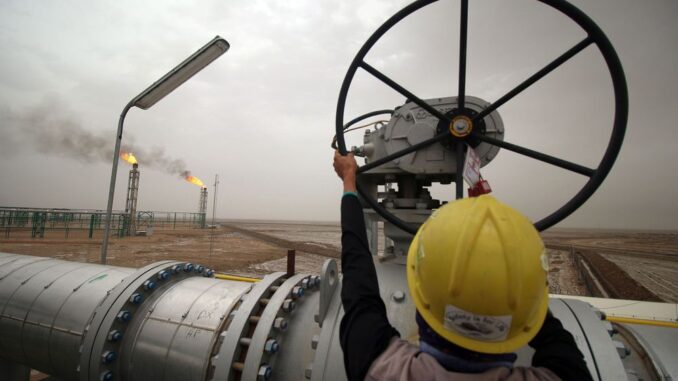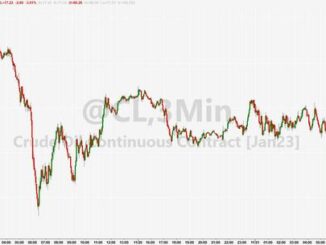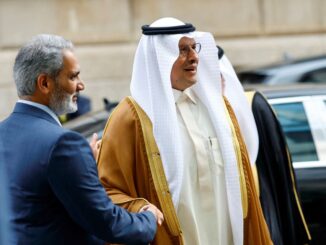
Energy News Beat Publishers Note: Bloomberg has access to great data, but we are seeing from other sources that the number will be much higher. They will not be under the OPEC+ quota, but rather exceed it again. Last year we were ahead of the rest of the news sources. Lets see if that happens again.
Iraq plans to cut oil output in January and February to make up for breaching its OPEC+ quota last year, according to the state company that markets the nation’s crude.
OPEC’s second-biggest producer will pump around 3.6 million barrels daily for the two months, according to Ali Nizar, the deputy head of SOMO. That would be the lowest level since 2015 and compares with around 3.85 million in December, according to data compiled by Bloomberg.
Exports, including those from the semi-autonomous northern region of Kurdistan, will be slightly more than 3 million barrels a day during the period, Nizar said in an interview in Baghdad, the capital. The figure for last month was almost 3.3 million.
Baghdad’s ability to meet these targets depends on whether the Kurdistan Regional Government agrees to reduce supplies from fields under its control, Nizar said. The central government has complained in the past that it can’t control Kurdish production.

The Organization of Petroleum Exporting Countries and partners such as Russia, an alliance known as OPEC+, agreed in April to slash output and bolster oil prices, which had been hammered by the spread of the coronavirus. Saudi Arabia criticized Iraq and other members including Nigeria for pumping above their caps on several occasions and called on them to make compensatory cuts.
Iraq is still committed to the OPEC+ deal, which runs until next year, Nizar said.
Following Saudi
Its decision to pump less oil follows a similar move by Saudi Arabia earlier this month. With the virus still raging, the kingdom said it would reduce production in February and March by 1 million barrels daily, a surprise move that caused oil prices to rise.
Tanker-tracking data suggest Iraq is already selling less crude. Exports slipped to just over 3 million barrels daily in the first 15 days of January, according to data compiled by Bloomberg.
Read more: Iraq’s Crumbling Economy Is Becoming a Threat to OPEC
Benchmark Brent crude has almost tripled to around $55 a barrel since OPEC+ begun restricting supplies. But it’s still far short of what Iraq needs to balance its budget and bolster its economy. The International Monetary Fund forecast that Iraq’s gross domestic product would contract 12% in 2020, more than that of any other OPEC member under an output quota.
Storage in Asia
Iraq is mulling whether to build or use oil-storage facilities in Asia to reduce the risk of it not being able to send crude to its main customers, according to Nizar. Persian Gulf neighbors Saudi Arabia and the United Arab Emirates already stockpile some of their crude in Japan, South Korea and India.
Why the Strait of Hormuz Is a Global Oil Flashpoint: QuickTake
Most of Iraq’s oil has to pass through the Strait of Hormuz. Iranian forces have targeted tankers traversing the chokepoint several times since early 2019 and threatened in the past to block it.
Prime Minister Mustafa Al-Kadhimi’s cabinet is yet to sign off on a multibillion-dollar supply deal with China’s Zhenhua Oil Co., according to Nizar. Under the terms, SOMO will supply roughly 130,000 barrels a day of crude to for up to five years, with Zhenhua paying for the first year upfront.
The pre-payment oil contract, a first for Baghdad, underscored the government’s need for cash.
— With assistance by Anthony Di Paola, and Bruce Stanley



